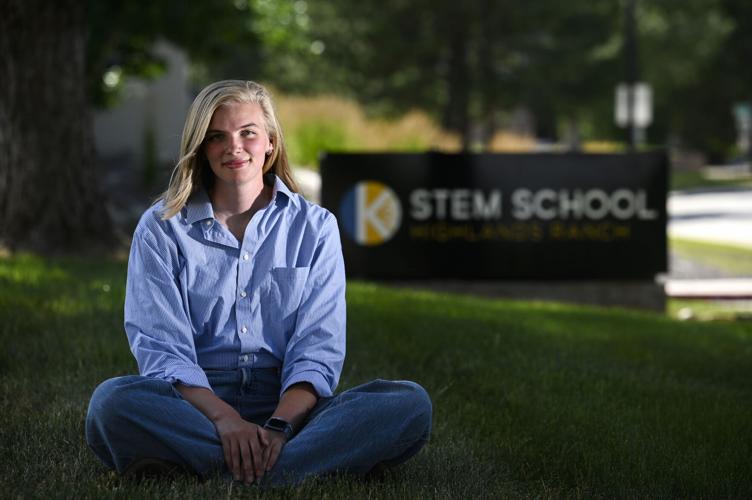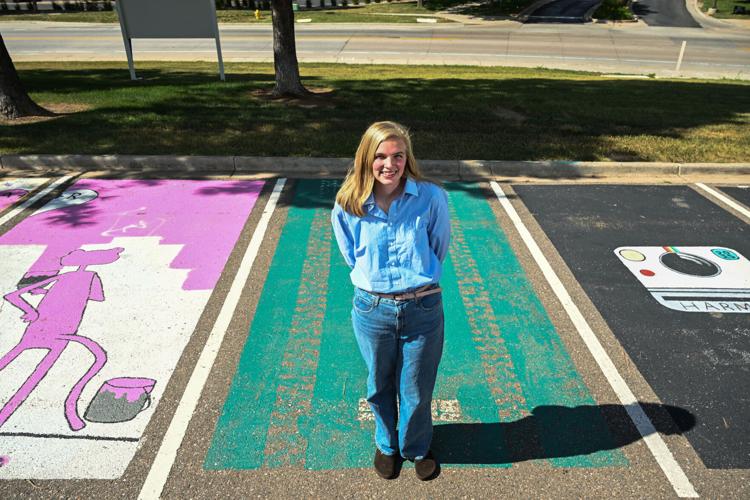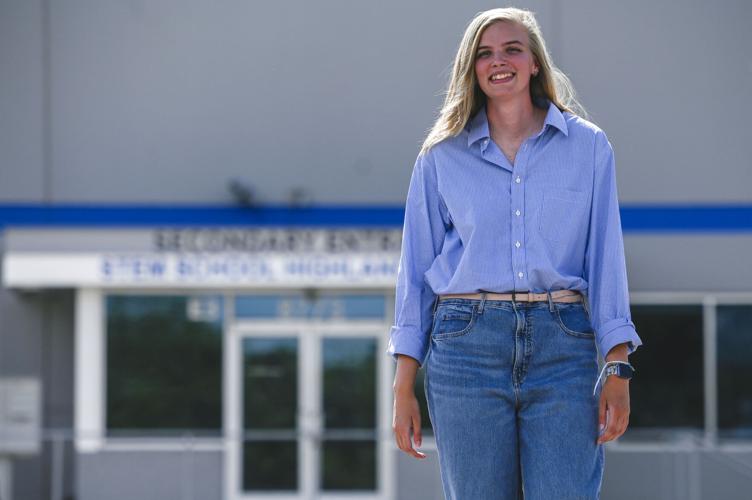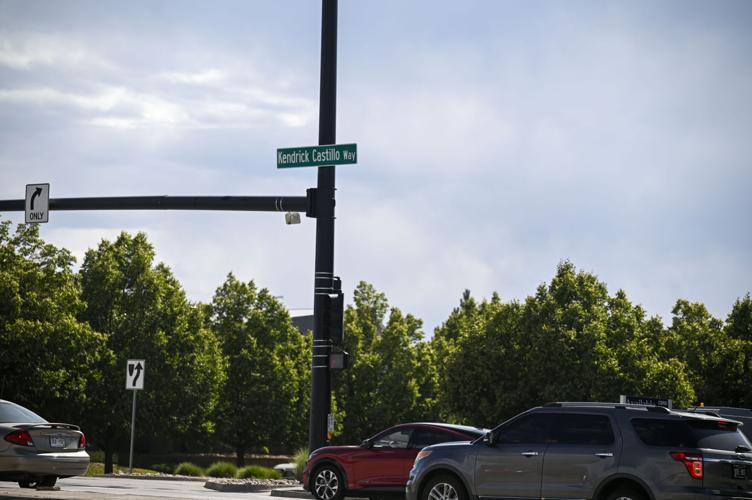Former STEM Highlands Ranch school student addresses mental health struggles after shooting
Back home for summer break, former STEM School Highlands Ranch student Ellie Wyse first saw the new street signs along the renamed Kendrick Castillo Way, a reminder of what she described as a tedious mental health recovery process after the tragic 2019 school shooting.
The roadway signs, Wyse said, is “just a constant reminder that a tragedy took place right down the road.”
The new Kendrick Castillo Way in Douglas County replaces Lucent Boulevard
On May 7, 2019, STEM school student Kendrick Castillo lunged in front of an active shooter, heroically sacrificing himself for the lives of others. Devon Erickson, 18 at the time, and Alec McKinney, 16, had entered the south metro Denver school and opened fire.
Erickson shot and killed Castillo, 18 years old at the time, while he lunged at the shooter. Eight others were seriously injured.
Wyse, a freshman at the time, was one of those there that day.
“The shooting had a pretty big impact on me,” Wyse, chasing a psychology major in her senior year at Ohio’s Cedarville University, told The Denver Gazette.
“I went through my own share of trauma. I want to help people in the same way I was helped,” she said, thanking the community around her.
Wyse said the shooting began a series of mental health struggles, including anxiety and depression, which she has since harnessed to pursue a career as a trauma therapist.
“This isn’t a gun control issue, it’s a mental health issue,” Wyse said.
Wyse noted she was classmates with Castillo and was in his class that semester.
She added McKinney, the other shooter she said used to hang out with during lunch hour, preemptively talked about the shooting prior.
“It’s really hard to know whether a teenager is being serious about that kind of thing or not,” Wyse said, emphasizing the importance of reporting mental health struggles, no matter what anyone is going through.
After the shooting, she said she became “reluctant to seek out help from my mental struggles, even though I kind of refused to admit that they were there.”
Then, out of nowhere, the COVID-19 pandemic struck.
“Coming out of the shooting and into sophomore year I was pretty OK,” Wyse said. “I had that community support I really needed … then the whole world locked down, and all that support was suddenly ripped away from me.”
She said the lockdown led to further feelings of isolation.
“I do think that part of my recovery with my mental health struggles is the fact that I pursued something and just went for it head first,” Wyse said of pursuing a career in therapy following the STEM school shooting and COVID-19.
“You can keep going and you can keep growing and becoming who you want to be,” she said, “and the pursuit of that is so helpful in your whole recovery process.”








